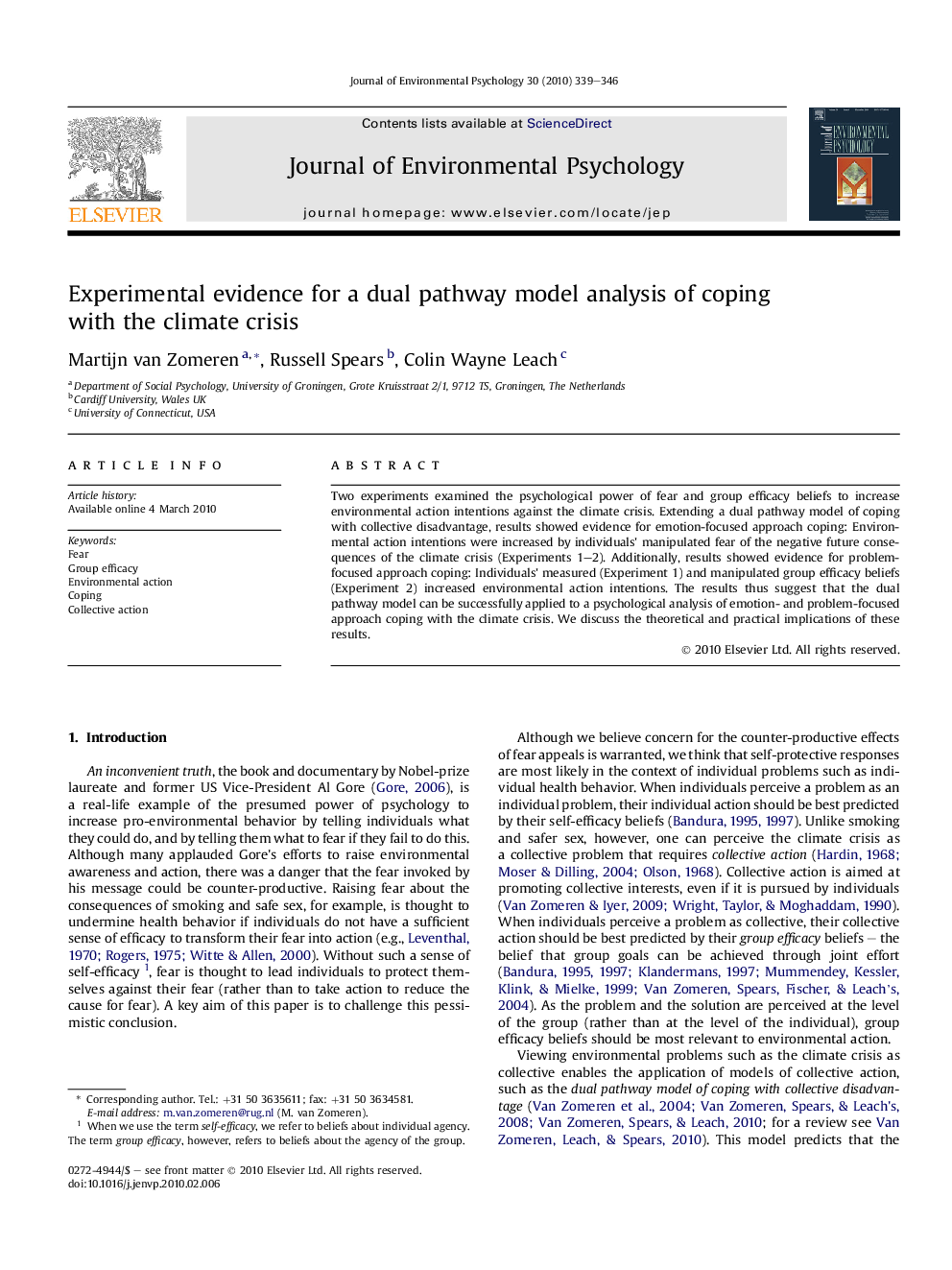| Article ID | Journal | Published Year | Pages | File Type |
|---|---|---|---|---|
| 7246627 | Journal of Environmental Psychology | 2010 | 8 Pages |
Abstract
Two experiments examined the psychological power of fear and group efficacy beliefs to increase environmental action intentions against the climate crisis. Extending a dual pathway model of coping with collective disadvantage, results showed evidence for emotion-focused approach coping: Environmental action intentions were increased by individuals' manipulated fear of the negative future consequences of the climate crisis (Experiments 1-2). Additionally, results showed evidence for problem-focused approach coping: Individuals' measured (Experiment 1) and manipulated group efficacy beliefs (Experiment 2) increased environmental action intentions. The results thus suggest that the dual pathway model can be successfully applied to a psychological analysis of emotion- and problem-focused approach coping with the climate crisis. We discuss the theoretical and practical implications of these results.
Related Topics
Social Sciences and Humanities
Psychology
Applied Psychology
Authors
Martijn van Zomeren, Russell Spears, Colin Wayne Leach,
